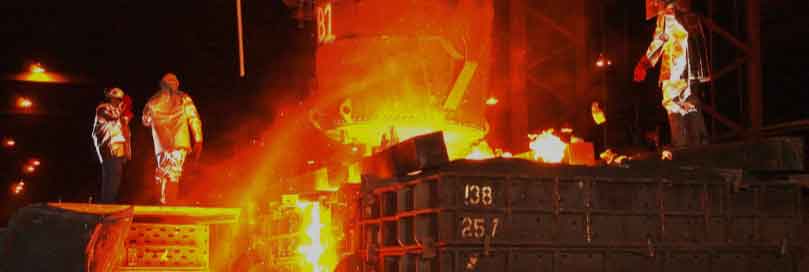
The future of steel castings is filled with advancements and trends driven by leading manufacturers. These developments aim to enhance the efficiency, quality, and sustainability of steel casting processes. Here are some key advancements and trends to look out for:
- Advanced Simulation and Modeling: Leading manufacturers are increasingly utilizing advanced simulation and modeling techniques to optimize casting processes. Computer-aided design (CAD), finite element analysis (FEA), and computational fluid dynamics (CFD) simulations allow for better prediction and optimization of casting parameters, reducing the need for costly trial-and-error methods.
- Automation and Robotics: Automation and robotics are transforming the steel casting industry. Manufacturers are implementing robotic systems for tasks such as mold handling, pouring, and post-casting operations. Automated systems improve efficiency, reduce labor costs, and enhance overall process control and consistency.
- Additive Manufacturing (3D Printing): Additive manufacturing, or 3D printing, is gaining traction in steel casting. It enables the production of complex geometries and intricate designs that would be challenging or impossible with traditional casting methods. Additive manufacturing offers greater design flexibility, reduced material waste, and faster prototyping capabilities.
- Advanced Material Development: Manufacturers are continually exploring and developing advanced steel alloys and compositions to meet specific application requirements. This includes high-strength steels, corrosion-resistant alloys, and alloys with improved heat resistance. These materials expand the range of applications for steel castings and offer superior performance in demanding environments.
- Digitalization and Industry 4.0: Steel casting manufacturers are embracing digitalization and Industry 4.0 concepts to improve productivity and efficiency. Integration of sensors, data analytics, and real-time monitoring systems enables predictive maintenance, process optimization, and enhanced quality control. Digital platforms facilitate seamless communication and collaboration across the entire supply chain.
- Sustainable Manufacturing Practices: Leading manufacturers are focusing on sustainable manufacturing practices to reduce their environmental impact. This includes energy-efficient technologies, waste management and recycling initiatives, emissions reduction strategies, and responsible material sourcing. Sustainable practices not only benefit the environment but also enhance the reputation and competitiveness of manufacturers.
- Improved Quality Control: Quality control is a critical aspect of steel castings, and manufacturers are adopting advanced inspection and testing techniques to ensure high-quality products. This includes non-destructive testing (NDT) methods such as X-ray, ultrasound, and magnetic particle inspection. Additionally, real-time monitoring and data analysis help detect defects and deviations during the casting process.
- Customization and Just-in-Time Manufacturing: Customers increasingly demand customized steel castings with shorter lead times. Manufacturers are adopting flexible production systems and just-in-time manufacturing approaches to meet these requirements. Advanced machining capabilities and agile production processes enable manufacturers to produce highly tailored and ready-to-use steel castings efficiently.
- Global Collaboration and Supply Chain Integration: Leading manufacturers are actively collaborating with customers, suppliers, and research institutions to foster innovation and drive continuous improvement. Global collaboration and supply chain integration enable knowledge sharing, technology transfer, and the development of new solutions and best practices.
By embracing these advancements and trends, leading steel casting manufacturers are shaping the future of the industry. These developments aim to deliver higher-quality products, improve process efficiency, reduce environmental impact, and meet the evolving needs of various industries that rely on steel castings.
